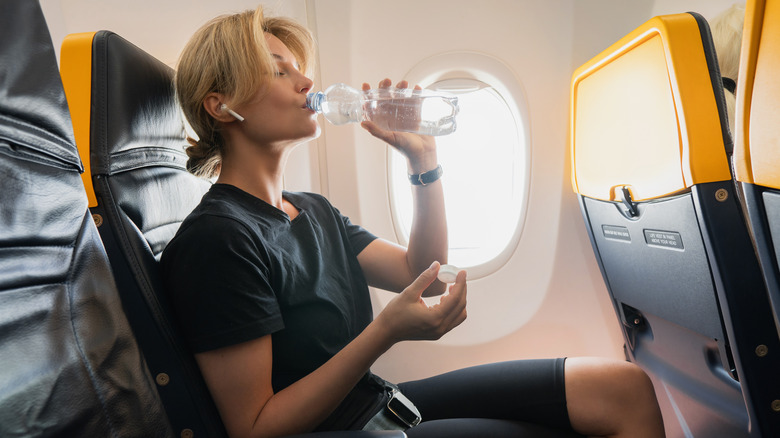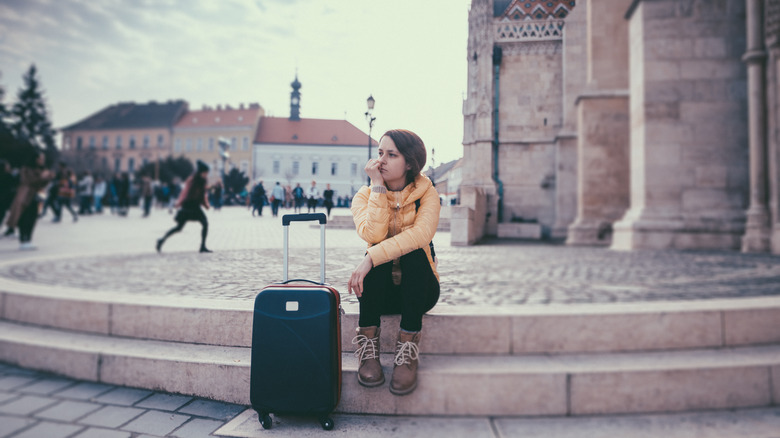When traveling, we all wish to arrive at our destination feeling fresh as a daisy. However, early morning flights and crossing multiple time zones mean we often arrive feeling a bit on the sleepy side of things. When fighting travel tiredness, your first instinct might be to mainline espresso, but professional globetrotter Samantha Brown urges you to think twice before immediately necking the strongest coffee you can get your hands on.
Brown regularly shares travel tips on her website and social media, and this one might change the game. First, Brown suggests putting caffeine on pause for a couple of days before your journey begins. That’s right — no espressos, lattes, or even chocolate bars, which can pack a caffeine punch. When you arrive at your destination, you still don’t get coffee. When do you get your cup of joe? Only when you’re so tired that your eyelids begin to close while you’re standing up. Order a double espresso and wait for that surge of energy to start coursing through your veins. Bam! Your key to unlocking the secret of staying alert while traveling.
Does it really work?

You might be wondering if this hack works to prevent jet lag and reduce fatigue. Is it worth denying yourself your morning cup of joe for two days before heading off on vacation? If you’re a regular coffee drinker, you may be well aware that you can build up a tolerance to caffeine. If you lay off coffee for a couple of days, that first sip at your destination should give you a real jolt of energy. According to WebMD, just one cup of coffee is proven to reduce tiredness and increase alertness.
However, caffeine withdrawal is real, and the more coffee you drink, the more pronounced it is. People who stop drinking caffeine usually feel withdrawal effects after 12 to 24 hours. One of these effects is fatigue, which may be no bad thing if you’re trying to sleep on a plane. But headaches, anxiety, trouble concentrating, and a low mood are also symptoms of caffeine withdrawal. These less pleasant side effects can be countered by staying hydrated — with water — and slowly decreasing your caffeine consumption rather than quitting outright. If you can bear to give up caffeine, we’d wager Brown’s tip will give you a real energy boost.
Other ways to fight travel tiredness

What if you don’t want to give up caffeine or you don’t like coffee? Rick Steves, another favorite travel expert, has many genius tips to help prevent jet lag, including ways to work with your body rather than against it. Other simple tricks for beating jet lag for good include taking a cold shower and exercising.
One of the less taxing ways to beat fatigue is to hydrate. Drink plenty of water during and after your flight to combat the effects of dehydration airplane cabins have, as being even a little dehydrated can make you feel tired. You’ll also want to avoid drinking alcohol before and during your flight. Though you might think a whisky will send you into a deep slumber, alcohol actually results in lighter, lower-quality sleep, leaving you feeling tired the next day.
Finally, you should plan to eat often — consuming regular meals and healthy snacks every three to four hours is ideal to keep your energy levels up. If you need an excuse to try all the delicious foods at your destination, now you have one!

